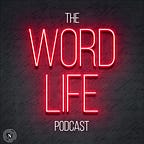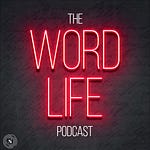In this week’s episode of Word.Life Donney is in conversation with poet Sasha Banks about her debut collection “america, MINE”, writing honestly about what America has been to Black people and the injustices that impacted the collection’s writing.
I have a confession: I have a bunch of talented friends. I say so not to brag about the circles I keep, but to state a matter of fact. Over the years, I’ve had the great fortune to meet and be in community with some of the dopest poets, emcees, musicians, and visual artists anywhere on the planet. My artist friends are not famous, but they are highly respected in their craft, revered amongst their peers, decorated, and quality humans. The overwhelming majority of them are from the South or have ties to the South as that is where my creative career blossomed, therefore it is where I met most of my creative friends.
It is also a reason that many of my super talented and independent artist friends are not household names.
Many times when I’m in need of creative inspiration I turned to the music or writings of my homies. It is a blessing to be able to know geniuses on a personal level and to have direct access to the artists behind the art that moves me. One such friend is an extraordinary poet by the name of Sasha Banks who I met nearly a decade ago when she first visited my hometown of Baton Rouge. Sasha’s poetry has been published all over the place in outlets such PBS Newshour, Apogee, and Fanzine, and she has been the recipient of numerous recognitions including a 2019 Rhode Island Writers Colony fellowship.
When I first heard Sasha’s work almost ten years back, I knew I was engaging with a rare talent. She, like many poets I’ve met over the years, began her public life as a poet in the world of spoken word, and specifically slam poetry. In the slam world, there’s a popular saying that the best poem doesn’t usually win the competition and that is because slam poetry is often a matter of theatrics and verse that’s easily palatable for an audience to digest in a short amount of time. Sasha’s poetry was rich and textured and nuanced when she was slamming. It gained her the respect of her peers but did not garner her trophies in the competitive world because it was basically too damn good for short-form consumption. And after a couple of years participating in the competitive circuit, Sasha would go on to Pratt Institute to receive her MFA, allowing her work the opportunity to exist in the density and experimentation it deserved.
But Sasha was not simply writing poems for the sake of being credentialed in academia or in efforts to scale the Ivory Tower of creative writing. She was finding the protest in her poetic voice at a time when this country needed an army of fearless Black wordsmiths to articulate the agony our people were enduring. In 2014, in the wake of Michael Brown being shot and killed by Ferguson police officer Darren Wilson, Sasha organized an online poetry campaign and fundraiser called ‘Poets for Ferguson’ that called upon the friends and colleagues she met in the world of slam and academia to raise their voices in advocacy for Mike Brown and to draw attention to specific adversity that activists and organizers in the Ferguson and St. Louis era were encountering.
Poets for Ferguson spread like wildfire over social platforms for a few days, as Sasha sat behind the scenes, largely uncredited with sparking a literary movement that has been replicated in various forms since her 2014 initiative. But what she was gaining was something far more valuable than social media clout, or a trending name. Through the work of Poets for Ferguson and her time studying at Pratt, Sasha was engaging in a deeper interrogation of this country’s relationship with Black people and exploring the impact of citizenship deprived of the most basic levels of belonging and membership.
Those years of critical exploration culminated in the 2020 release of her debut collection of poetry, titled america, MINE, a stellar body of work that challenges notions of cultural autonomy, ancestral memory, and belonging, all while daring its readers to imagine how this nation would function if it was stripped of the supremacy that shaped it.
I recently had the opportunity to talk with Sasha about the creation of america, MINE, and the inspiration behind two of my favorite poems in the collection, “Recollect” and “God Bless America.” And as much as I knew I was chatting with a friend, I also was reminded that I was in conversation with an incredibly important writer that the world needs to be leaning into.
I began our conservation by asking Sasha about a blurb on the back of america, MINE that referred to it as a collection that was taking on the hard work of refracturing an already fractured landscape and rebuilding it in a more honest image, and asked her how difficult it was to build out that honesty while sitting with the reality of what America is, and what it should be
I next asked Sasha about the timeline of america, MINE which straddled between the Obama and Trump administrations amid a period of high-profile cases of racial injustice and police violence against Black Americans. I was curious about how much adjusting she had to do over the course of the six years it was working, and the social patterns she was witnessing as the writing was unfolding
Of the two poems I wanted Sasha to read for this episode, the one I wanted her to start with was “Recollect,” the first piece in america, MINE that is written as a somewhat post-apocalyptic ode to the America we currently know. In “Recollect,” Sasha challenges readers to draw out certain images of a lost country as they remembered it. I wanted to know what inspired that unique concept and what she hoped that readers would take away from it.
I was especially intrigued by a line in “Recollect” where Sasha asks what shade of white is the White House? and asked if she could describe the symbolism of the line and what it means for America to run on white nationalism/white supremacy
My favorite poem from america, MINE is “God Bless America,” where Sasha brilliantly writes using a poetic form called contrapuntal. I wanted to know why she chose to use the contrapuntal, which is basically a poem that braids separate texts into one, and what was she aiming to say specifically about America’s treatment of Black women
In “God Bless America” Sasha takes the lyric “land that I love” from the song God Bless America and bookends it with the phrase “that I fear will kill or lynch me as I stand beside her.” I asked Sasha if she could elaborate on what it means for Black folks to often stand in solidarity with a country that has looked to dehumanize us the whole time we’ve been here
I lastly wanted to know what key lessons did Sasha want the readers of america, MINE to take away from its poems, with respect to what side of the American experience they landed on, be it privileged or marginalized











